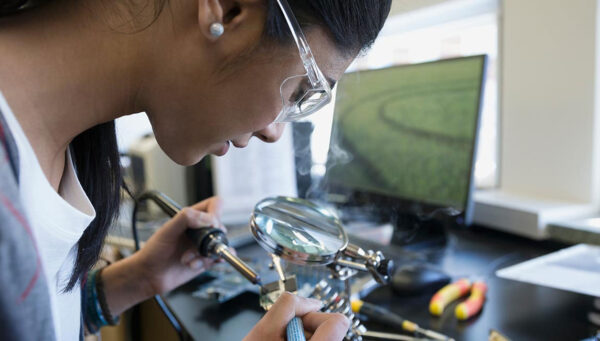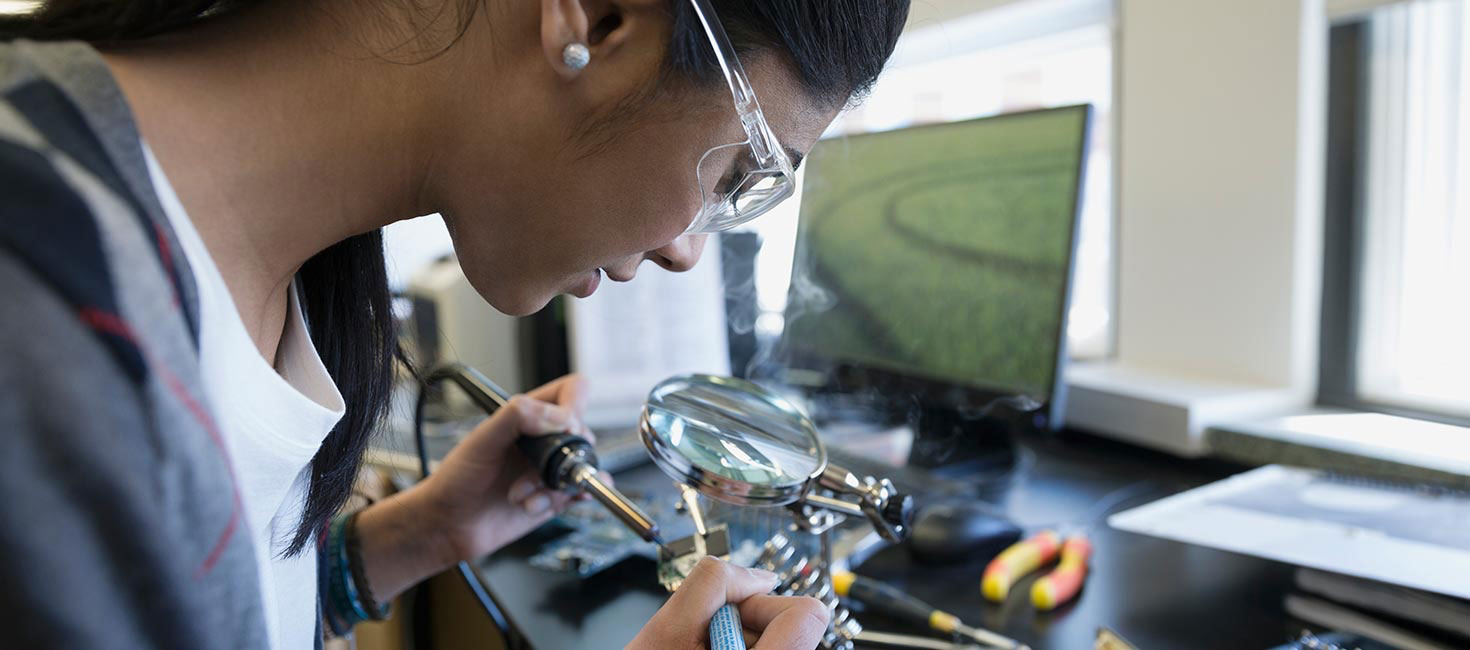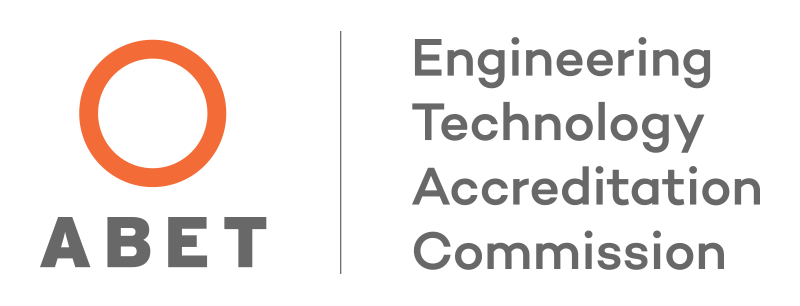
Bachelor of Science in Electrical Engineering Technology
Bachelor of Science in Electrical Engineering Technology

Talk with us.
Learn more about how our program works
and what you need to get started
Spark New Opportunities with a BS in Electrical Engineering Technology
Accredited by the Engineering Technology Accreditation Commission of ABET, the Bachelor of Science in Electrical Engineering Technology program advances the technical skills you need for diverse jobs in electronics, electrical power, semiconductors, and computer technology.
This career-focused program ensures that you have a breadth of conceptual knowledge as well as a depth of expertise in either of two technical concentrations, opening up employment opportunities in telecommunications, robotics, renewables, and more.
The BS in Electrical Engineering Technology program is offered in two options: 100% fully online and hybrid with fully online courses and courses that blend online and in-person learning. The hybrid option includes required in-person class sessions in St. Petersburg, Florida, in the evenings or on the weekends. These hands-on experiences reinforce what you’ll learn online and equip you to be practice-ready for the technology engineering workforce. Each hybrid course requires a three-hour in-person session every other week, for a total of 12 hours on-site per course per term.
Dedicated Support
Here for you from start to finish
200,000+ Alumni
Join our global network
Start January 5
Courses start every 8 weeks
PROGRAM DETAILS
Online BS in Electrical Engineering Technology
- General Education33 Credits
- Major Core62 Credits
- University4 Credits
- Electives6 Credits
- Concentration15 Credits
Bachelor of Science in Electrical Engineering Technology
Focus on the design and application of electronic systems as you develop the expertise in digital and analog electronics, microcontroller programming, and system integration needed to pursue careers in consumer electronics, telecommunications, embedded systems, and digital hardware development.
Prepare for careers in the generation, transmission, and distribution of electrical power with a theoretical understanding of power system components, industrial automation, and energy infrastructure.
Explore Common Careers

Micah White
Bachelor of Science in Electrical Engineering Technology, 2023
Institutional Accreditation
Excelsior University is an accredited institution and a member of the Middle States Commission on Higher Education (MSCHE or the Commission) www.msche.org. Excelsior University’s accreditation status is accreditation reaffirmed. The Commission’s most recent action on the institution’s accreditation status on June 23, 2022 was to reaffirm accreditation. MSCHE is recognized by the U.S. Secretary of Education to conduct accreditation and pre-accreditation (candidate status) activities for institutions of higher education including distance, correspondence education, and direct assessment programs offered at those institutions. The Commission’s geographic area of accrediting activities is throughout the United States.
All of Excelsior University’s academic programs are registered (i.e., approved) by the New York State Education Department.
ABET ACCREDITATION
Bachelor of Science in Electrical Engineering Technology accredited by the Engineering Technology Accreditation Commission of ABET, https://www.abet.org, under the commission’s General Criteria and Program Criteria for Electrical/Electronic(s) Engineering Technology and Similarly Named Programs.
FAQ
The hybrid option of Excelsior University’s BS in Electrical Engineering Technology program is a learning experience that combines the flexibility of online courses with hands-on, in-person training. You’ll complete your coursework online through a 24/7 class portal and attend in-person lab sessions held in St. Petersburg, Florida, for three hours every other week. The format gives you the opportunity to apply what you’ve learned in a real-world setting and network face-to-face with peers and faculty.
Yes, Excelsior University’s Bachelor of Science in Electrical Engineering Technology program is accredited by the Engineering Technology Accreditation Commission of ABET, https://www.abet.org, under the commission’s General Criteria and Program Criteria for Electrical/Electronic(s) Engineering Technology and Similarly Named Programs.
In Excelsior’s BS in Electrical Engineering Technology program, you’ll learn skills that include:
- Foundational circuit theory
- Digital and analog electronics
- Computer programming
- Project management
- Microprocessor principles
Electrical engineering focuses on the theoretical foundations and conceptual design of electrical systems, whereas electrical engineering technology (EET) emphasizes the practical application and implementation of those designs through hands-on work with systems, testing, and maintenance.
BS in EET graduates find opportunities in any business sector that utilizes electronic technology, including energy, aerospace, automotive, medical technology, information technology, telecommunications, and manufacturing.
It’s possible to complete a bachelor’s degree program at Excelsior University in four years. Excelsior’s BS in Electrical Engineering Technology is 120 credits, and your time to completion depends on the amount of credit you transfer into the program and the number of courses you take per term.



